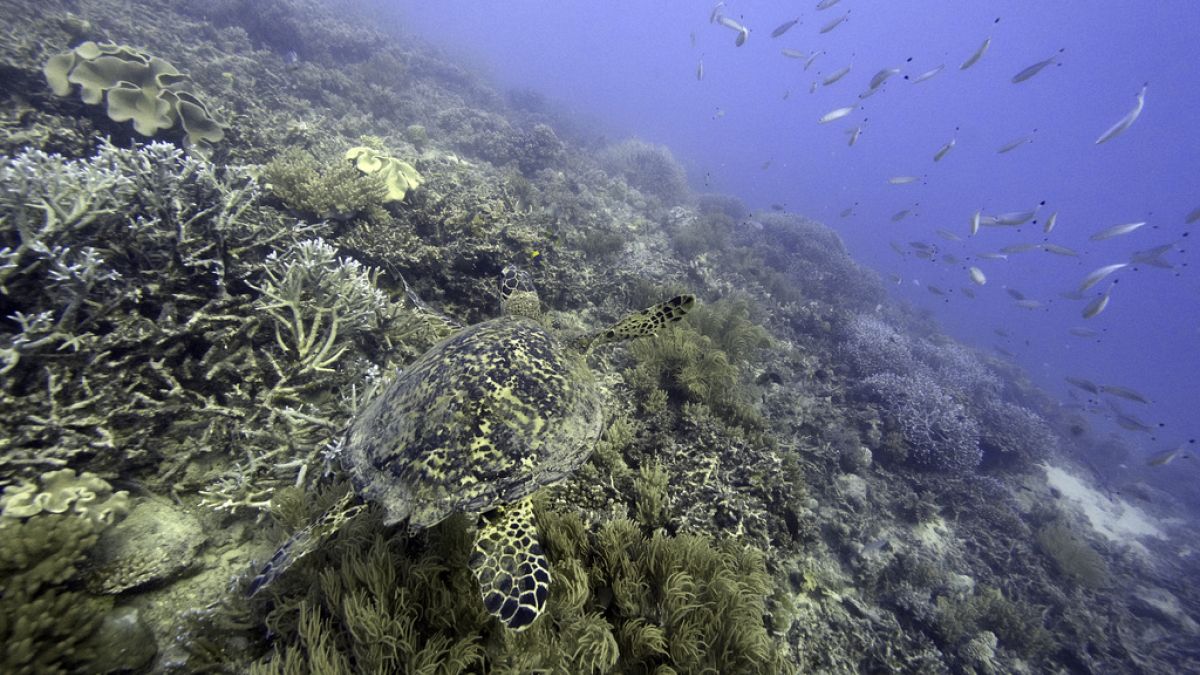Three European non-governmental organizations (NGOs) commissioned an Ipsos survey in Belgium, Poland and Italy to promote debate on the risks of deep-sea mining.
Environmental activists are concerned about intensive efforts to pass rules that will govern future commercial deep-sea mining of minerals and metals in international waters.
Since July 15, the International Seabed Authority (ISA) - an organisation created within the framework of the United Nations in 1994 - has been conducting negotiations during meetings of its governing bodies in Jamaica.
That's why three European NGOs (WeMove Europe, Seas At Risk and the Deep Sea Conservation Coalition) commissioned an Ipsos survey, carried out in Belgium, Poland and Italy, with a sample of 3,000 people.
Of these, 56% oppose deep-sea mining and support a temporary ban on this new industry. Another 33% approve of mining if the damage is limited, 7% have no opinion and only 4% support mining without reserves.
"Scientists warn us that we need more time to better understand the seabed," said Rachel Walker-Konno, campaigner at WeMove Europe, in an interview with Euronews.
"Just last week a discovery was made about polymetallic nodules - the rocks that contain the minerals that mining companies aim to extract - which reveals that they produce oxygen. This has completely changed what we know about how oxygen is produced, because this happens in the depths of the sea, without sunlight," she added.
A ban or a suspension?
Scientists have warned that we need to know more about possible impacts on ecosystems, fish populations and the ocean's ability to sequester and store carbon dioxide.
So far, only 31 countries in the world support either a ban, moratorium or preventive pause, of which 10 are members of the European Union. France is the only member state calling for a ban. A pause until there is more data is defended by Denmark, Sweden, Finland, Germany, Portugal, Spain, Ireland, Greece and Malta.
Two years ago, the European Commission advocated, in a "Joint Communication on the EU Agenda for International Ocean Governance", for a ban until further evidence is produced that it can be carried out safely.
The document argues that mining should only occur when "scientific gaps are adequately filled" and when there is certainty that "no harmful effects will arise" and that "the marine environment will be effectively protected.”
Over the past year, dozens of global financial institutions, companies in fishing, technology and automobile manufacturing sectors have joined scientists and indigenous groups in calling for a halt to deep-sea mining.
Would these metals be useful?
ISA has, since the 1960s, signed around 30 contracts for the exploration of polymetallic nodules (PMN), polymetallic sulphides (PMS) and cobalt-rich ferromanganese crusts (CFC) on the seabed. These nodules contain copper, nickel, iron, manganese, cobalt and rare earths.
These contracts aim to explore the commercial potential of these resources, involving government and private entities. The prospecting areas are the Clarion-Clipperton Fracture Zone, in the Central Indian Ocean Basin, in the Western Pacific Ocean, in the Southwest and Central Indian Ridges and in the Mid-Atlantic Ridge.
Several EU countries are involved, namely Germany, France, Belgium, Italy, Poland, Czechia. Some governments are eager to obtain new sources of minerals used, for example, in electrical batteries and semiconductors. But activists say it may not be worth choosing that route.
"Through deep sea mining, we mainly obtain polymetallic nodules that contain manganese, some nickel, cobalt and copper. Many of these minerals are being replaced in today's clean technologies and certain minerals that are incredibly necessary, such as lithium, are not to be found in these nodules," says Rachel Walker-Konno.
Canada and Norway move forward
But Canada (under the TMC company) could apply for a license to operate commercially in international waters as early as 2025, in the Clarion-Clipperton Zone (CCZ) – a vast area between Hawaii and Mexico. It remains to be seen whether, by then, the International Seabed Authority will have reached a decision on the legal framework that should be in place.
A decisive aspect in knowing what direction this organisation will take is the election, on Friday, of the secretary general. The current deputy secretary general Michael Lodge (from the United Kingdom) is running with a very pro-industry position, defending a rapid adoption of the rules.
Letícia Carvalho, a Brazilian oceanographer and former oil and gas regulator, advocates greater precautions and believes that studies should continue for a few more years.
The United Nations Convention on the Law of the Sea (UNCLOS) declared in 1982 that the seabed outside national jurisdiction is the “common heritage of humanity” and that any use should benefit the “global development of all countries".
Norway announced that it intends to begin commercial activity in its territorial waters soon. In a vote in the national parliament on January 9, the green light was given to deep-sea mining in an area of 281,000 square kilometres around the Arctic archipelago of Svalbard.












